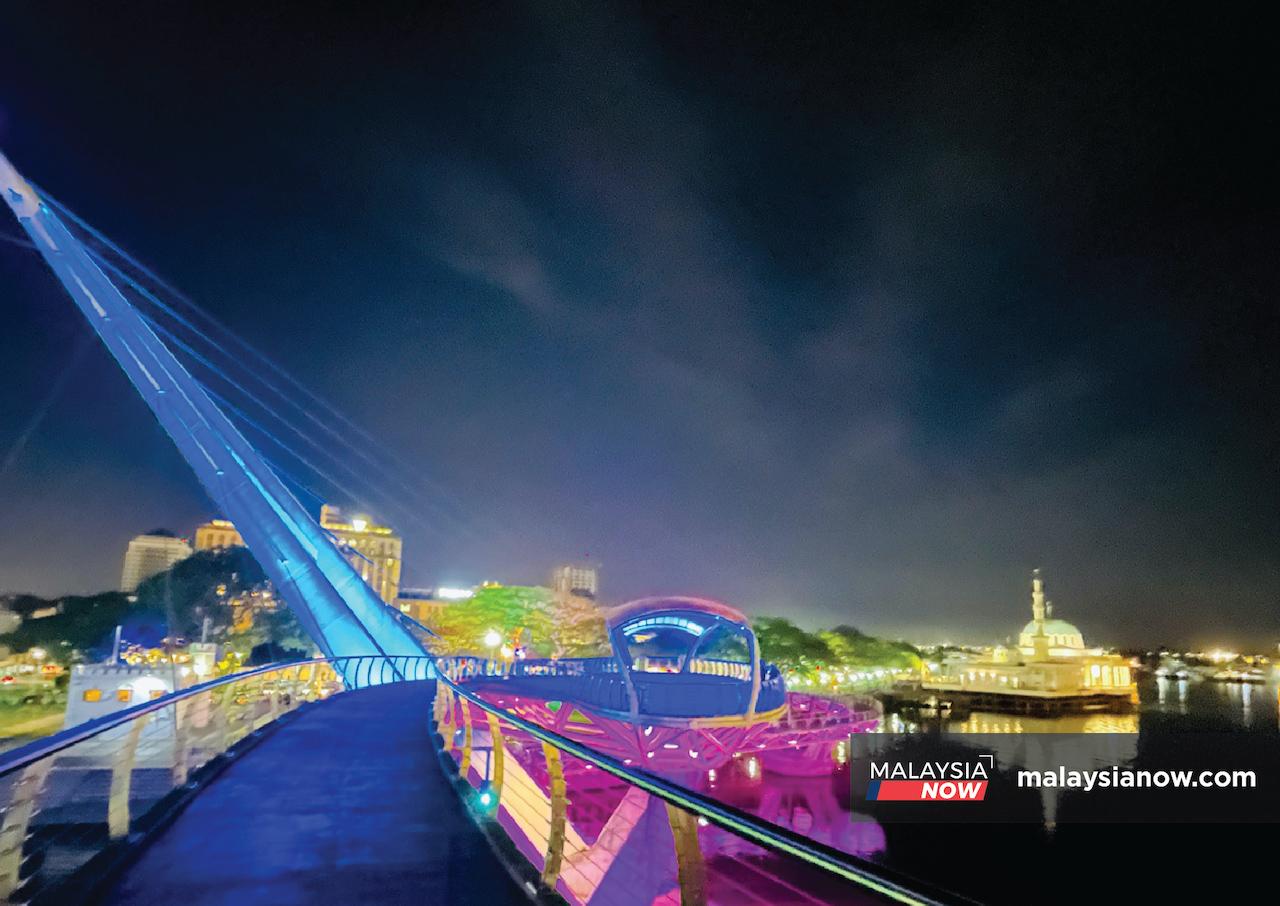Sarawak’s floating mosque struggles to stay above Covid wave
Initially touted as a main tourist attraction, it is now struggling to continue fulfilling its various duties to the community as financial problems persist.
Just In
Two years ago, Sarawak unveiled what was dubbed the Floating Mosque – a unique architectural showpiece constructed on the banks of the Sarawak River in Kuching.
Built at a cost of RM21 million, it was hailed as the state’s next attraction after the Darul Hana Bridge.
By day, the gentle slopes and clean lines of the building were reflected in the river’s calm water and by night, the mosque would be illuminated by colourful lights which lent a glow to the riverfront area.
Today, the lights continue to shine but the mosque, like thousands of other houses of worship around the country, stands eerily empty under Covid-19 preventive measures.
Once bustling with worshippers and visitors who would come to view the mosque’s unique design, its weekly attendance for Friday prayers has dropped from about 1,000 people to no more than a tenth of that number.
The difference is especially palpable at this year’s independence day celebrations which began on July 22 and, in line with tradition, will continue for a week.
When Sarawak first began celebrating the state’s independence day at the Kuching Waterfront four years ago, it was a grand and noisy affair.
Visitors flooded the heart of the capital city where streets were lined with stalls selling food and local handicraft, and Sarawak’s tri-coloured flag fluttered at every corner.
In the years that followed, the annual celebrations continued in the same vein.
The roads leading to the popular India Street and Gambier Street would be congested with a steady stream of drivers looking for a place to park, and pedestrians would thread their way between vehicles as they headed to the event space to enjoy the show.
Throughout the day, celebrations would be enlivened by exhibitions and live performances while locals and visitors alike would participate in the many programmes and activities planned for the special occasion.

The Bandar Kuching mosque, meanwhile, would see a steady stream of worshippers flocking in to perform their prayers.
For years, mosques such as this, seen widely as community hubs, charities and education centres in addition to houses of worship, have relied on public donations for the extra money needed to keep these activities going.
But the seemingly never-ending flow of restrictions on movements and social activities, coupled with public concern over the highly contagious Delta variant of Covid-19, have left the Floating Mosque struggling to continue performing these roles.
Shajahan Sayed Ahmad, who manages the mosque’s trustee welfare board, said the pandemic had taken a huge toll on its finances.
“Before the limitations and restrictions on the number of worshippers allowed at mosques, we could collect around RM40,000 a month,” he said.
Now, they are fortunate to collect RM4,000.
The trustee board also owns many shops near the mosque which it leases to traders at a minimal charge. But this doesn’t help much, Shajahan says.
Speaking to MalaysiaNow, he said the latest lockdown imposed in June had pushed the traders to the breaking point as they were not allowed to open for business. This meant that they were unable to generate sales and thus have not been able to pay their rent.
Shajahan said this year has been the most difficult so far for the mosque.
While it has set aside some money for the allowance of its imam and muezzins as well as to pay its maintenance workers, monthly costs including water and electricity bills can often exceed RM5,000.
Shajahan said the mosque would continue to do what it could, for as long as it could, although he is not optimistic about the future.
“We still have cash reserves but I don’t think we can survive another six months if the restrictions continue like this,” he said.
Subscribe to our newsletter
To be updated with all the latest news and analyses daily.
